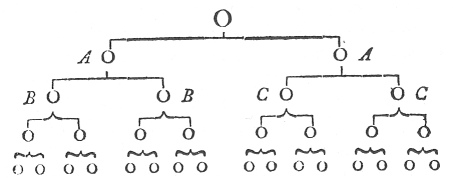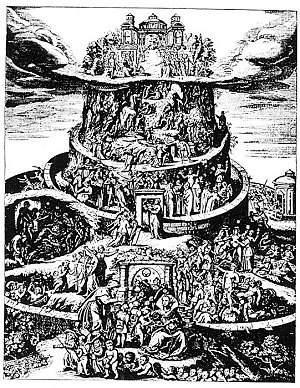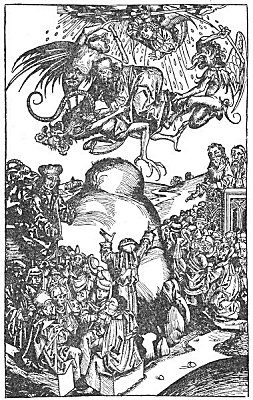“Oh prejudice! oh contradiction of the human mind! shall the empire of reason, the capacity of governing ourselves, be but a chimerical dream for the greater number of men, while on the other hand prejudice leads us to believe that such is the inherent right of the children of Kings, of reigning families, and of every man whom wisdom or particular circumstances render independent!”
What horrid artifice is contained in these sentences! The poor proselyte really imagines that he sees the most striking contradictions in the very foundations of our civil societies. He really thinks that we believe them to rest on the hereditary privilege of Kings and of their children, to be born with all the necessary wisdom to conduct themselves, while nature has refused such gifts to other mortals; though Weishaupt, who scoffs in private at the credulity and folly of his adepts, knows as well as we do, that such has never been the idea even of the most ignorant populace. He knows that we believe Kings to be born children like other men, with the same weaknesses, the same passions,
p. 482
and like incapacity; he knows as well as we do, that the gift of conducting ourselves and others is to be acquired by education, and by the helps and lights with which a man may be encompassed; and we know as well as he does, that the child of the most obscure parentage would often make a better king than many Sovereigns; as he might also be an excellent magistrate, or a great general, had he received a proportionate education. But does there hence follow any contradiction in civil society, because, uncertain as to the persons who would be the most proper for governing, but certain of the intrigues and broils which would accompany the election of Kings, it has obviated those inconveniencies by hereditary crowns and empires? And after all, what is the meaning of that sophisticated pretence founded on the power of being able to conduct oneself? Question the most prudent and the wisest of men, and he will readily say, though I do not stand in need of laws, magistrates, or Kings, to restrain me from being unjust toward others, or from oppressing and plundering, I yet want their assistance to secure me from being oppressed or plundered. The less I am inclined to injure others, the more I need the protection of the law from all injury. You are pleased to call my submission to the laws slavery; I, on the contrary, look to it as my safety, and as the guarantee of that liberty which enables me to do good and to live happy and at peace in society. I have never heard of laws which forbad me to live like an honest man. It is the wicked man only who recognises liberty but in the impunity of his crimes; I scorn such liberty, and bless the hand that deprives me of it. You call him a tyrant and a despot, I call him my King and my benefactor. The better I know how to conduct myself with respect to others, the more thankful I am to him who hinders others from behaving ill to me.
The reader must pardon me these reflexions; I know they are superfluous to those who think; but may not this work fall into the hands of persons as credulous as the unhappy proselyte. In exposing the envenomed weapons of the Sect, let it not be said that I withhold the antidote. Should any be still blind enough not to perceive the tendency of all these sophisms of Illuminism, let them hearken to the Sect ardently declaring their hopes; the Hierophant continues:
“Are we then fallen from our dignity so low as not even to feel our chains, or to hug them, and not cherish the flattering hope of being able to break them, or to recover our liberty, not by rebellion or violence (for the time is not yet come), but by force of reason. Because a thing cannot be accomplished to-morrow, should we despair of ever being able to effect it? Abandon such short-sighted men to their own reasonings and their own conclusions; they may conclude again and again; but nature will continue to act. Inexorable to all their interested remonstrances, she proceeds, and nothing can impede her majestic course. Some events may take place contrary to our wishes; but they will all rectify of themselves; inequalities will be levelled, and a lasting calm shall succeed the tempest. The only conclusion to be drawn from all these objections is, that we are too much accustomed to the present state of things, or perhaps self-interest has too great sway over us, to let us own that it is not impossible to attain universal independence—

Moe is the founder of GnosticWarrior.com. He is a father, husband, author, martial arts black belt, and an expert in Gnosticism, the occult, and esotericism.





